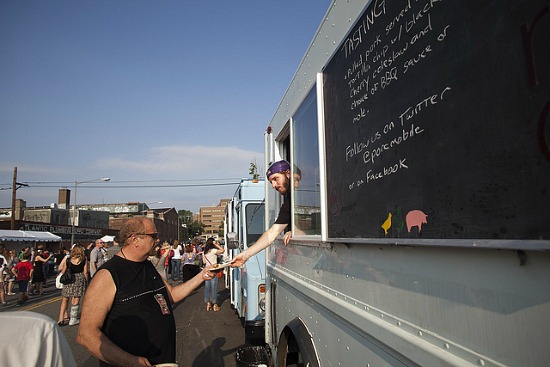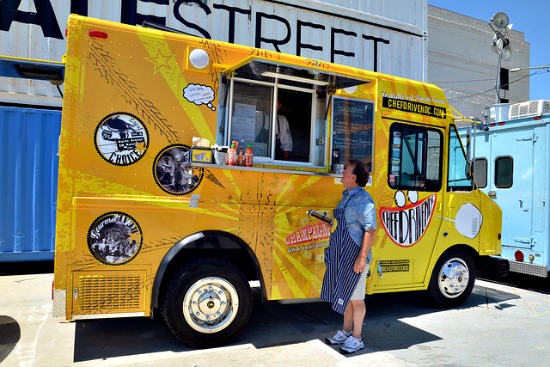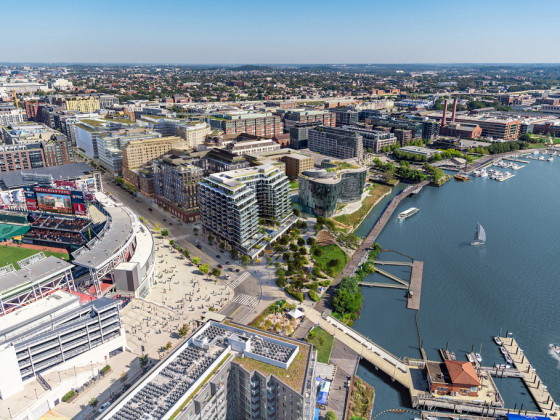What's Hot: Did January Mark The Bottom For The DC-Area Housing Market? | The Roller Coaster Development Scene In Tenleytown and AU Park
 The Food Truck Battle
The Food Truck Battle
✉️ Want to forward this article? Click here.
The fight over the rules that govern food trucks in the District of Columbia has been going on for almost two years, and this week, the public comment period ended on the latest set of proposed regulations.
The most recent proposal from the D.C. Department of Consumer and Regulatory Affairs would establish two ways for food trucks to operate in the District. They could use existing parking spaces, as they do now, but abide by the posted time limit for that space — and ensure that the spot is next to 10 feet of unobstructed sidewalk.
Alternatively, vendors could apply for a space in designated Mobile Roadway Vending locations, which would be established by the District’s Department of Transportation and allow food trucks to stay in one place and serve customers for longer periods. Permits for those locations — which haven’t been outlined and would be subject to input from food truck owners, District officials, and restaurant industry stakeholders — would cost close to $2,000 per year.
Even with these regulations on the horizon, most trucks have continued to operate, getting the occasional parking ticket or other citation, all the while looking at their business in terms of how they can expand without adding more trucks — at least for now.
For the guys behind PORC Mobile, this has meant accelerating a plan to branch into a brick-and-mortar restaurant, and pretty much cancel plans to add more trucks.
“Our initial goal was to have three trucks, but when we assessed the current climate for food trucks, and how they were being treated by the government, it became untenable to do it,” Josh Saltzman, one of the partners in PORC Mobile, told UrbanTurf.
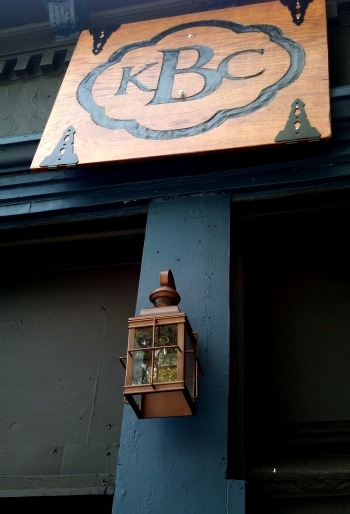
Kangaroo Boxing Club.
In June, the PORC Mobile crew opened Kangaroo Boxing Club, a bar at 3410 11th Street NW in Columbia Heights that features many of the truck’s beloved menu items. They still love the truck and would like to do more mobile vending, but aren’t making any moves soon.
“We’re not making any more mobile ventures until we see some respect and proper regulations from D.C.,” Saltzman says. If the regulations pass as proposed, they would probably have to shut Porc Mobile down, he added.
Many of the food truck operators who have moved into fixed locations planned to do so all along, but they also acknowledge that the ongoing uncertainty caused by the regulation stalemate was one factor in their decisions.
Pleasant Pops, which sells local goods, sandwiches and salads, always intended to be in a storefront, says co-owner Roger Horowitz. But they had to start small, with popsicle carts at farmer’s markets, and eventually, a popsicle truck, to raise the startup money.
“We’re extremely fortunate that we were pretty early on in starting a food truck,” he said. “But [the regulations] totally influenced our decision to spread out our business.”
Even with their Pleasant Pops shop, now having been open in Adams Morgan (map) for two months, Horowitz and partner Brian Sykora are still watching the rulemaking closely, because it could have a significant impact on the catering business they run using their truck, which Horowitz estimates makes up 10 to 20 percent of their business during the high season.
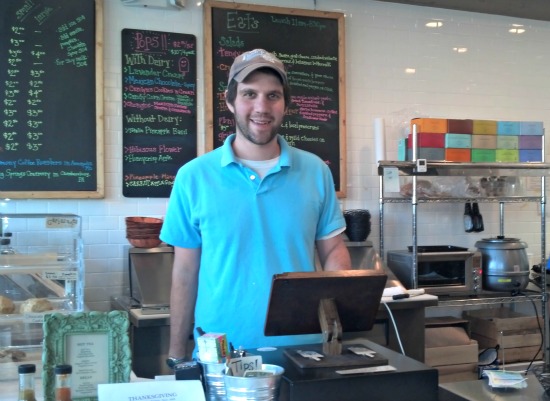
Roger Horowitz of Pleasant Pops.
The proposed rule that food trucks not operate in a parking spot adjacent to an unobstructed sidewalk that is less than 10 feet in width would make it difficult for their truck to park near potential catering clients’ locations, Horowitz says.
Mike Lenard of the TaKorean truck — who just opened up a fixed location counter in Union Market (map) — always had a brick and mortar location in mind. But right now, he has no plans to open another truck. His existing truck’s business would even be difficult to maintain under the city’s existing regulatory proposal.
“If it went through, at a minimum, we would drastically reduce service,” he says. “It might not kill the truck, but it would definitely cost at least three people their jobs.”
Jeff Kelley, who last year sold his Eat Wonky trucks and branched into the food truck consulting business, says that the food truck owners who open in permanent spaces get a level of stability that food trucks don’t have.
“The regulations are certainly a factor in going brick and mortar,” Kelley said. “DC Empanadas, Takorean, Curbside Cupcakes, with their fixed locations, they limit the amount of stuff they have to deal with in that regard.”
The public comment period on the most recent proposed regulations ended on November 13. Now, city officials have to weigh the comments, determine whether the existing language should be tweaked or changed, and eventually submit it to the D.C. Council for their approval. In the meantime, food truck owners will continue to make their case — and decide if a permanent location makes sense.
Rebecca Cooper is a freelance journalist and avid eater who has contributed to TBD, DCist, and Washingtonian.
See other articles related to: food trucks
This article originally published at http://dc.urbanturf.production.logicbrush.com/articles/blog/the_food_truck_battle/6304.
Most Popular... This Week • Last 30 Days • Ever

As mortgage rates have more than doubled from their historic lows over the last coupl... read »

The small handful of projects in the pipeline are either moving full steam ahead, get... read »

Lincoln-Westmoreland Housing is moving forward with plans to replace an aging Shaw af... read »

The longtime political strategist and pollster who has advised everyone from Presiden... read »

A report out today finds early signs that the spring could be a busy market.... read »
DC Real Estate Guides
Short guides to navigating the DC-area real estate market
We've collected all our helpful guides for buying, selling and renting in and around Washington, DC in one place. Start browsing below!
First-Timer Primers
Intro guides for first-time home buyers
Unique Spaces
Awesome and unusual real estate from across the DC Metro
